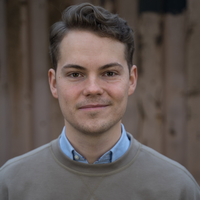How do you actually become Federal Chancellor? Why doesn't the name of the candidate appear on the ballot paper? Why are there talks of Jamaica, Kenya and traffic lights during the elections? Where is the climate list…because I voted for it? Politics determines our lives, but how can we better understand it?
"Wer regiert Neuland" provides a low-threshold and interactive introduction to the German political system for young and first-time voters. These and other questions are answered in a playful way. With the help of a web-app, participants form their own government and try to lead 'Neuland' into a better future. First, a new parliament is elected. Participants then become politicians, negotiate with each other, try to find common ground, make decisions and reach compromises. In "Wer regiert Neuland", participants experience first-hand that every vote really does count and how to vote so that the desired government is formed. Moreover, they learn vocabulary such as coalitions, exploratory talks and parliamentary group meetings.
The simulation game is written in simple language and there can be chosen from various political topics, so that the game can be adapted to the needs and interests of the participants and can be carried out without barriers to certain groups.
Our aim is to make democracy more accessible by involving first time voters. We can only emphasize what Friedrich Ebert once said: Democracy needs democrats! Because only through them, it can be strengthened and lived.
Project Goals
More and more young people say that they are interested in politics, but are reluctant when it comes to political participation or a deeper engagement with understanding politics. This is shown by the results of the Vodafone Youth Study (2022) in which 91% of participants between 14 and 24 state that they are very interested in the outcome of elections, but 50% do not know how they work. It is precisely this discrepancy that poses a threat to the democratic order, as many believe they have no influence on German politics. Where mistrust grows, so does the space for conspiracy myths. This is precisely where "Who governs Neuland“ comes in:
Strengthen understanding of democratic processes and participation:
The overarching aim of the game is to involve young and first-time voters in democratic processes and thereby strengthen democracy itself. This should be done in an interactive and playful way in order to break down complex dynamics and make them easier to understand and experience.
Provide incentives and a basis for getting involved in political processes:
A better understanding of democratic processes provides a good basis to stimulate interest in partcipation and engagement in political events.
Challenging myths and theories about government formation:
A Shell Youth Study (2019) showed that almost a quarter of young people in Germany are susceptible to populist statements. They have the feeling that they are not being heard and thus begin to believe in myths and anti-democratic theories about the formation of government. Playful education encourages them to question, follow up and get involved and can thus overcome populist narratives.
Encourage people with a history of flight and/or migration who are eligible to vote:
Another goal is to create a suitable offer for first-time voters who do not have sufficient knowledge of the German political system due to their flight and/or migration experience and therefore do not vote (Goerres et al., 2022). The teaching materials of our game are designed in such a way that they also address the special needs of first-time voters with a history of flight and/or migration and can thus include them into democratic and political processes.
Simplification for teachers and training of multipliers:
Complex political processes are often not easy to communicate. Teachers can encounter a lot of resentment and frustration when trying to do so, which is why a playful option is intended to help them convey this content in a more sustainable way. The free training of multipliers in the form of teachers and associations throughout Germany and the free provision of simulation game materials for those carrying out the game will make the simulation game easy to use in schools, associations and migrant organizations.
Target Group(s)
Young people (14-24)
First-time voters
First-time voters with flight and/or migration background
Specialists working in educational institutions or non-profit associations
Planned Outcomes/Achievements
Educate young and first-time voters about the political system in a playful way and thus, strengthen democracy and participation.
Promote the willingness to compromise, teamwork and discussion skills. Participants will then be able to interact with each other via a cross-workshop discussion portal on a new website.
Multipliers will be trained free of charge and be provided with game materials so that they can pass on and implement the game as often as they like and in different contexts.
Using qualitative and quantitative analyses by the Institute for Parliamentary Research (IPAL), the results of the workshops will be systematically evaluated and incorporated into political research and the actual political practice in order to better inform politicians about the needs of young and first-time voters.




